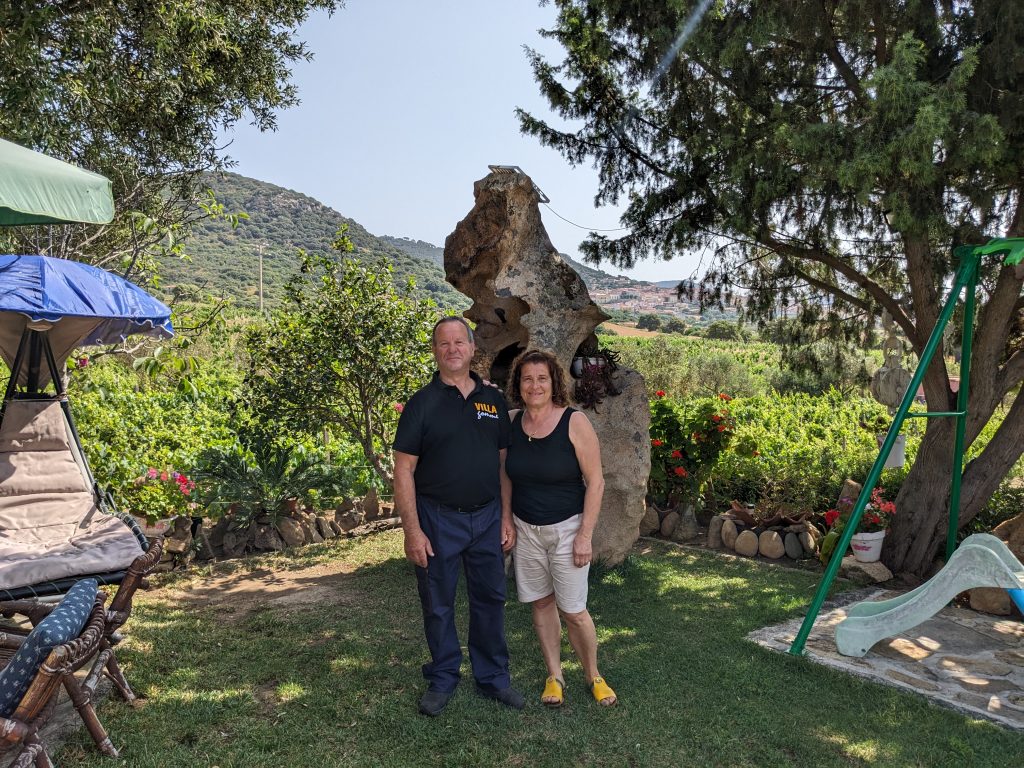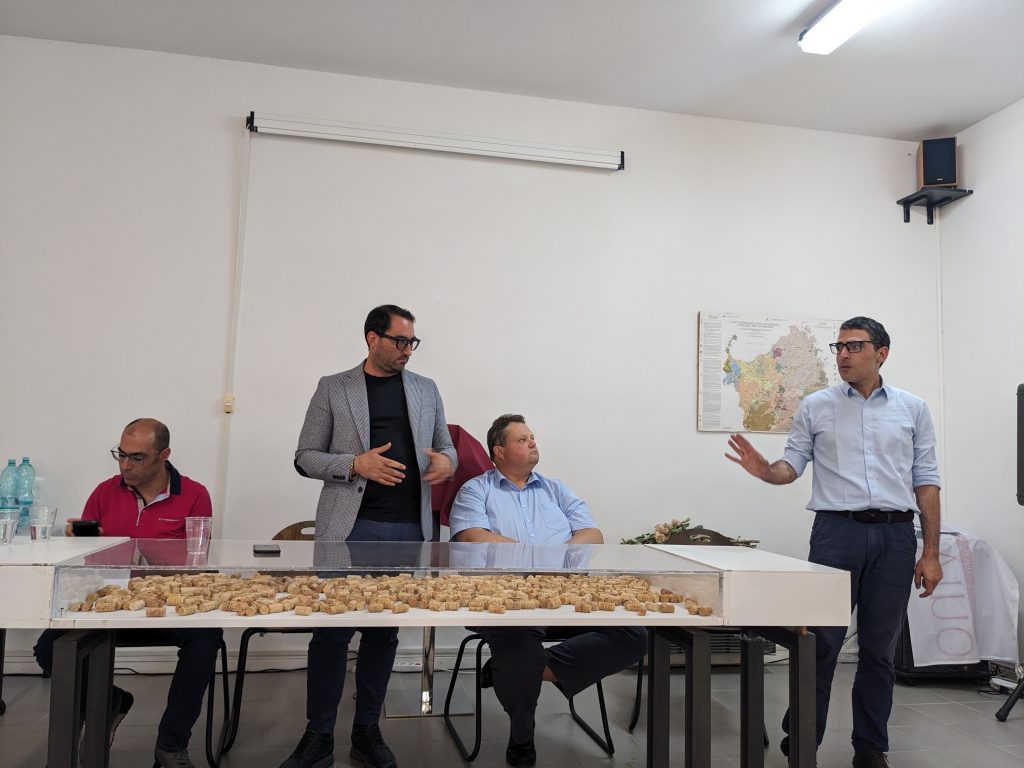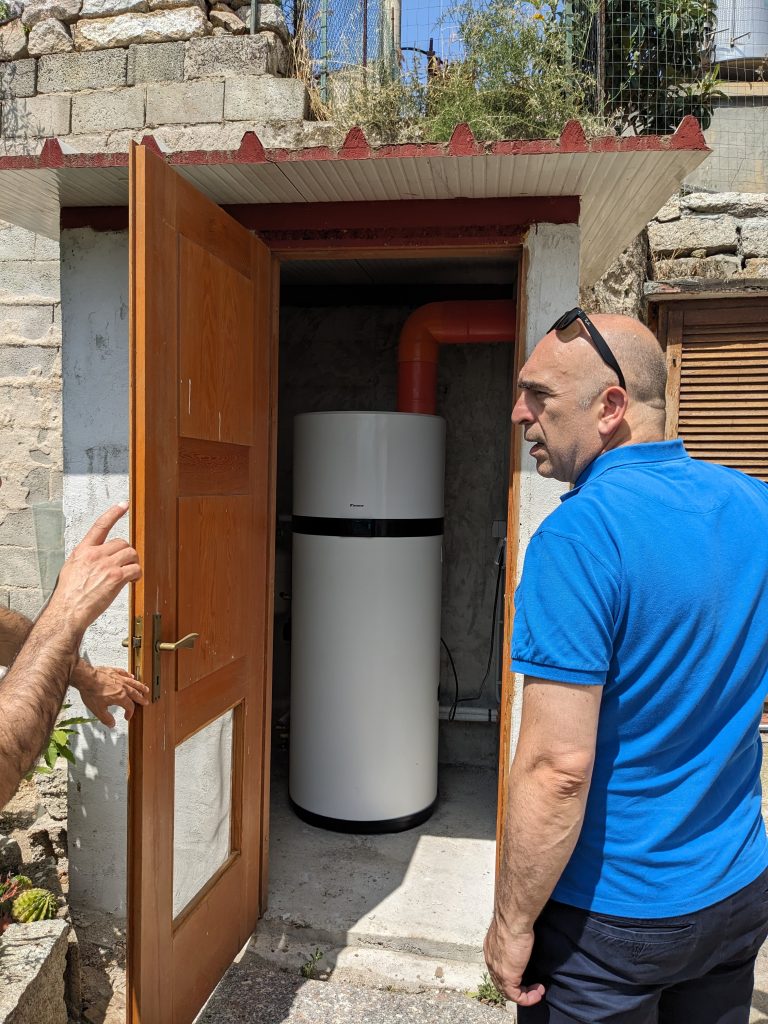Keeping cool in the Sardinian mountains – energy communities pave the way towards energy democracy
This is how a family in rural Sardinia keeps cool without breaking the bank
When Mirella Sanna and Salvatore Berria arrived on this side of the mountain there was nothing. The orchards and grapevines were all planted by them.
We were received for a study visit and while we were waiting for the rest of the participants we got talking. Ms Sanna was very proud of her plants and the patio we stood on overlooked the fields. The couple has been living on that hill for 40 years.

A municipality looking for innovation
Berchidda is a village of 3000 inhabitants [in the low season] located on the slopes of Mount Limbara, on the north of Sardinia. They are currently involved in six EU projects aiming to green their energy system.
A small community of winemakers, there is less pre-existing infrastructure, so everything that gets built aims to be innovative and efficient. The municipality owns the grid so their breath of action is larger than it would be otherwise.

We were fortunate enough to meet with the Mayor, Andrea Nieddu, who delineated their priorities as follows:
- Improving quality of life
- Mobilising works, funds and the economy
- Engaging citizens and keeping the community well involved
Citizen engagement
This family had been aware of the benefits of joining into one of these initiatives for some time [the solar panels went up four years ago, for example – 6kw installed total], so they jumped at the chance to be involved in LocalRES, a project aiming to empower local energy communities in four small, secluded municipalities.
They have three heat pumps [one for sanitary water, two for heating and cooling] plus six solar panels. They don’t use gas for heating at all anymore.

This is a large house for a large family and a lot of appliances are always on. It was unbearably hot when we arrived but as we were shown the cooling systems, the temperature inside was completely reasonable. This sort of setup would cost an ordinary family an inordinate amount of money if they did not produce their own energy.
Energy democracy
In Italy, electricity that is injected and sold into the grid and then consumed elsewhere is compensated accordingly. This incentive is only for daylight hours, and they try calibrating the heat pumps, either locally or manually within the scope of the project.
Proceeds go to the Limbara energy community’s communal bank account where members decide how to allocate the funds.
Energy communities are one of the load bearing pillars of energy democracy and they need to be nurtured. Initiatives like this have allowed an elderly couple living on a mountain to live comfortably with their children and grandchildren without paying out the nose. The money they would spend trying to keep their house at a reasonable temperature can now be used for something else, stimulating the local economy.
If you are interested in making sure that energy is accessible to all, take a look at this briefing by The European Community Power Coalition.
